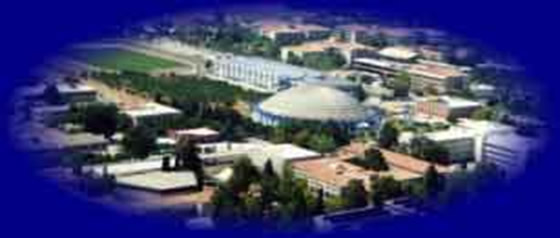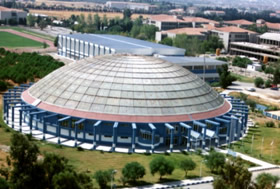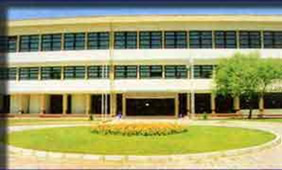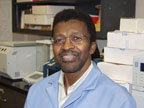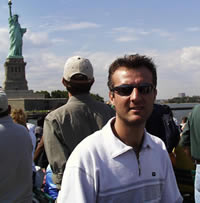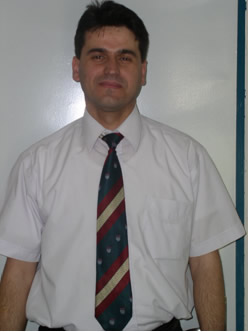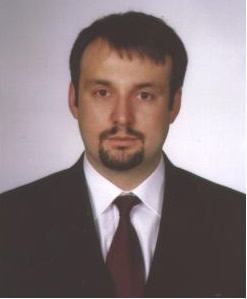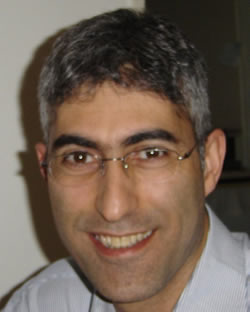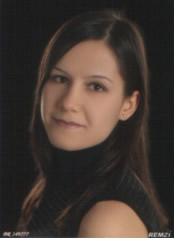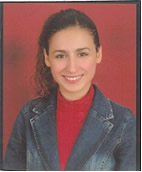Turkey 2006
From 2006.igem.org
| (3 intermediate revisions not shown) | |||
| Line 1: | Line 1: | ||
| - | + | __NOTOC__ | |
== Welcome, [http://www.ege.edu.tr EGE UNIVERSITY in Turkey] == | == Welcome, [http://www.ege.edu.tr EGE UNIVERSITY in Turkey] == | ||
'''[[GENERAL INFORMATION]]''' | '''[[GENERAL INFORMATION]]''' | ||
| - | |||
[[Image:ege1.jpg]] [[Image:ege2.jpg]] [[Image:ege3.jpg]] | [[Image:ege1.jpg]] [[Image:ege2.jpg]] [[Image:ege3.jpg]] | ||
| Line 17: | Line 16: | ||
The educational process is enriched by a number of other activities, parallel to the core studies, such as seminars, lectures by invited scholars, educational visits, as well as summer schools and conferences that are organized by the University's Departments. The curricula of all the institutions of the university contain required courses and a wide choice of electives offered both within and outside their area of specialization, some taught in English. | The educational process is enriched by a number of other activities, parallel to the core studies, such as seminars, lectures by invited scholars, educational visits, as well as summer schools and conferences that are organized by the University's Departments. The curricula of all the institutions of the university contain required courses and a wide choice of electives offered both within and outside their area of specialization, some taught in English. | ||
| - | |||
| - | |||
| - | |||
| - | |||
| - | |||
| - | |||
| - | |||
| - | |||
| - | |||
| - | |||
| - | |||
| - | |||
| - | |||
| - | |||
| - | |||
---- | ---- | ||
| Line 45: | Line 29: | ||
The first bioengineers of Turkey have graduated from the department in academic year of 2003/2004. At the present there are total of 27 graduates. Master and PhD programmes of Department of Bioengineering have been launched in the academic years of 2001/2002 and 2004/2005 respectively. | The first bioengineers of Turkey have graduated from the department in academic year of 2003/2004. At the present there are total of 27 graduates. Master and PhD programmes of Department of Bioengineering have been launched in the academic years of 2001/2002 and 2004/2005 respectively. | ||
The Department of Bioengineering provides strong fundamental knowledge on Bioengineering and related disciplines through most recent technological applications at the labs via hands-on approach. | The Department of Bioengineering provides strong fundamental knowledge on Bioengineering and related disciplines through most recent technological applications at the labs via hands-on approach. | ||
| + | |||
| + | The main fields of Bioengineering can be classified as follows:<br> | ||
| + | • Bioprocess Engineering; Bioprocess Design, Biocatalysts, Bioseparation.<br> | ||
| + | • Genetic Engineering; Cell Engineering, Tissue Culture Engineering. <br> | ||
| + | • Biomedical Engineering; Biomedical Diagnosis, Biomedical Therapy, Biomechanics, Biomaterials. <br> | ||
| + | • Molecular Engineering; Protein Engineering, Design of Active Compounds <br> | ||
| + | • Biotechnology; Industrial Biotechnology, Plant and Animal Biotechnology, Environmental Biotechnology.<br> | ||
| + | |||
In the year 2004 Department of Bioengineering a very prestigious grant from the EU FP6 program in the field of “Integrating and Strengthening the European Research Area”. With a very high score of 24 out of 25, in project proposal of the department was selected as a 2 budding’ Center of Excellence in Bioengineering and Biotechnology. It has been granted a total support of 650 000 € from the FP6 program. The project was named “BIOACE” after “Aegean Centre of Excellence for Bioengineering and Biotechnology” reflecting the departments status in TURKEY. BIO-ACE will be the first Centre of Excellence in Turkey in the area of Bioengineering and Biotechnology renowned for its unique quality in RTD and post-graduate training as well as wide-spread contacts and collaborations at national and European levels. The strategic objectives of BIO-ACE will be to: | In the year 2004 Department of Bioengineering a very prestigious grant from the EU FP6 program in the field of “Integrating and Strengthening the European Research Area”. With a very high score of 24 out of 25, in project proposal of the department was selected as a 2 budding’ Center of Excellence in Bioengineering and Biotechnology. It has been granted a total support of 650 000 € from the FP6 program. The project was named “BIOACE” after “Aegean Centre of Excellence for Bioengineering and Biotechnology” reflecting the departments status in TURKEY. BIO-ACE will be the first Centre of Excellence in Turkey in the area of Bioengineering and Biotechnology renowned for its unique quality in RTD and post-graduate training as well as wide-spread contacts and collaborations at national and European levels. The strategic objectives of BIO-ACE will be to: | ||
Latest revision as of 08:51, 29 August 2006
Welcome, [http://www.ege.edu.tr EGE UNIVERSITY in Turkey]
Ege University is a state university that acts as a focal point for education, research, cultural and social activities in the city of Izmir and the Aegean region. The University is one of Turkey 's leading campus universities, with a major commitment to education, research, cultural and social activities. The University aims to give its students the opportunity to acquire specialized knowledge and training in a wide range of related areas and they are encouraged to develop their powers of observation, creativity and flexible thinking.
Ege University adopts the fundamental ideal of achieving excellence and highest quality in undergraduate and graduate education, in research and in public service by encouraging critical intellectual development, combining research and teaching, redefining educational goals of this millennium and by utilizing physical and human resources to provide a better learning environment and guided education.
Ege University is the University of Choice for intelligent, motivated students who are willing to learn and accept responsibility and wish to receive high quality education in an atmosphere where ideas are freely exchanged.
Being a university with an international perspective, the educational system of Ege University is based on the principle of creative teaching and participatory learning. The University embraces many diverse fields and disciplines of study; therefore the academic calendar and the duration of studies vary.
The educational process is enriched by a number of other activities, parallel to the core studies, such as seminars, lectures by invited scholars, educational visits, as well as summer schools and conferences that are organized by the University's Departments. The curricula of all the institutions of the university contain required courses and a wide choice of electives offered both within and outside their area of specialization, some taught in English.
BIOENGINEERING DEPARTMENT AT EGE UNIVERSITY
Research and education on Biotechnology at Ege University was started in 1979 with the establishment of the Department of Biochemistry & Biochemical Engineering. The next foundation was Biotechnology Center for Research and Applications which was established in 1989. This Center started accepting students to its multidisciplinary Biotechnology Graduate Program in 1991.
Ege University Department of Bioengineering was founded in 2000 as the first Bioengineering Department in Turkey. Since then, it has expanded rapidly with has reached 25 full-time staffs by 2006.
Each year 30 new students are accepted to the four year undergraduate programme. Presently there are 161 undergraduate, 22 Masters and 13 Ph.D. students continuing their education.
The first bioengineers of Turkey have graduated from the department in academic year of 2003/2004. At the present there are total of 27 graduates. Master and PhD programmes of Department of Bioengineering have been launched in the academic years of 2001/2002 and 2004/2005 respectively. The Department of Bioengineering provides strong fundamental knowledge on Bioengineering and related disciplines through most recent technological applications at the labs via hands-on approach.
The main fields of Bioengineering can be classified as follows:
• Bioprocess Engineering; Bioprocess Design, Biocatalysts, Bioseparation.
• Genetic Engineering; Cell Engineering, Tissue Culture Engineering.
• Biomedical Engineering; Biomedical Diagnosis, Biomedical Therapy, Biomechanics, Biomaterials.
• Molecular Engineering; Protein Engineering, Design of Active Compounds
• Biotechnology; Industrial Biotechnology, Plant and Animal Biotechnology, Environmental Biotechnology.
In the year 2004 Department of Bioengineering a very prestigious grant from the EU FP6 program in the field of “Integrating and Strengthening the European Research Area”. With a very high score of 24 out of 25, in project proposal of the department was selected as a 2 budding’ Center of Excellence in Bioengineering and Biotechnology. It has been granted a total support of 650 000 € from the FP6 program. The project was named “BIOACE” after “Aegean Centre of Excellence for Bioengineering and Biotechnology” reflecting the departments status in TURKEY. BIO-ACE will be the first Centre of Excellence in Turkey in the area of Bioengineering and Biotechnology renowned for its unique quality in RTD and post-graduate training as well as wide-spread contacts and collaborations at national and European levels. The strategic objectives of BIO-ACE will be to:
1 - Contribute to Research and Technology Development capacity building in Turkey by improving the quality and quantity of education in the area of Bioengineering and Biotechnology and catalysing the initiation of innovative companies in this area through increased scientific research and know-how development,
2 - Increase its scope of activities as well as its regional coverage and become more active, nationally and internationally through the synergies established with the EU institutions, Participating Units and industry, especially in the area of health care,
3 - Increase its networking capabilities with other Biotechnology/Bioengineering Centres in EU and AC countries through mobilising human and material resources, disseminating scientific information as well as the results of research, facilitating communication between centres having similar scientific interests,
4 - Enhance the participation of Turkey in the 6th Framework Programme through joint projects developed with cooperating units and European institutions,
5 -Increase job opportunities in Turkey for young scientists through better career opportunities, better work conditions as a result of improved science and technology infrastructure and encouragement of the establishment of new industries in the area of Biotechnology. Aware of its unique potential in its area Departmant of Bioengineering was sharing knowledge and ideas with the industry, entrepreneurs, other departments and universtities. Presently 55 projects have been completed and 55 are continuing amounting to 6.5 projects per academic staff. Funds over 5 million Euros have been obtained from different sources for these projects:
Project
Advisors
Dr Raul Cuero,(PhD)
Dr. Raul Cuero, (PhD, Microbiologist, Distinguished Professor.Research Leader, Scientist and Contact Person for Prairie View A&M University iGEM 2006 group. Dr Cuero holds 8 scientific inventions and more than 90 scientific publications.Dr Cuero is currently working on fungal toxins at the molecular level, and on biogenesis. He is also the author of the book "Triumph and Survival".
Instructors
Dr Bahattin TANYOLAC, Phd.
My lab mainly involves in genome mapping and Highthroughput Shotgun genome sequencing. Recent project has been funded by Turkish Research Council on which Idenfication and cloning QTL conferring natural color in fiber. My lab also involve in International Potato Genome Sequencing Project. This project is multi national project that several countries such as US, Uk, China, Holland, Peru are participating.
Staff
Nuri AZBAR
Nuri AZBAR (Associate Professor) is an environmental engineer with a Ph.D. degree in Civil&Environmental Engineering Department from Vanderbilt University, USA (1999) and has 15 years of teaching and research experience at Dokuz Eylul, Balikesir and Ege Universities and has over 35 publications in anaerobic bioprocesses, bio sorption, industrial effluent treatment and sustainable development. Currently, he has two ongoing projects on both bio-methane production from concentrated industrial effluent and bio-hydrogen production from cheese whey wastewater via two-step anaerobic bioprocesses, respectively.
Erdal Bedir (Associate Professor)
He received his B.Sc.degree in pharmacy at Hacettepe University, Turkey in 1992. He obtained his M. Sc. (1995) and Ph.D. (1998) in pharmacognosy at the same university. He was appointed as a research scientist, Faculty of Pharmacy, Hacettepe University in 1993. He has been at National Center for Natural Products Research, University of Mississippi as a post-doctoral fellow and research scientist between March-1999 and Aug-2003. In Aug-2003 he joined Bioengineering Dept., Faculty of Engineering, Ege University as associate professor. Research areas of Dr. Erdal Bedir are isolation of active components from natural sources which possess antimicrobial, antitumor, and immunomodulator properties, and structure elucidation of the isolates. Moreover he focuses on optimization of large scale extraction and isolation of natural products of commercial value. He has over 60 publications in his field. He reviews articles for Journal of Natural Products, Planta Medica, Journal of Agricultural and Food Chemistry, and Journal of Chromatography.
Kemal Korkmaz
He got his PhD in Norvey on Androgen Receptors. He did his postdoc in San Diego US. He has been working at department of Bioengineering Since 2005. His research area is mainly to conduct a comprehensive analysis of the transcriptional profiling via identification of promoters that are directly bound by the Androgen Receptor in human cells and correlate these interactions with transcriptional changes by using promoter and expression microarrays. Anticancer compound identification and characterization from natural plant extracts by using cell based screening combined apoptosis assays.
Students
Hulya Yilmaz
Hulya Yilmaz is Bioengineer graduated from Ege University Bioengineering Department in 2004. She has her Msc in the same department of the Engineering faculty with the dissertation of ‘M3 (Muscarinic Type 3) Gene Expression Of Polypoid Lesions In Gastrointestinal System’ in 2005. She is doing her PhD in genetic engineering field in Bioenginering Department of Ege University Engineering Faculty. Ms. Hulya Yilmaz has been working as a researcher at Ege University Faculty of Medicine, Gastroenterology department and her main research area is genetics.
Sinem Melek Nalbantoğlu
I was born in Bursa in 1982. I have been living in Izmir for 23 years. I graduated from İstanbul University ,Cerrahpaşa Medical Faculty from the department of Medical Biological Sciences and Genetics in 2004. After this, I started my master’s Programme on the subject of ‘’ Cytotoksicity of Some Alkanna Species and Examination of the Effects on DNA and inhibition of DNA Topoisomerase I Enzyme’’ in Ege University, Faculty of Engineering, Department of Bioengineering (2004-2006). I have been working on the Izolation and purification of anticancer compounds and searching their inhibitory effects on DNA Topoisomerase I Enzyme. Examination of the topological DNA forms on agarose gel and detemining the inhibitory activity of the compounds on these leading the termination of replication of DNA in cancer cell-.
Şehnaz ÖZATAY
She was born in 1976, İzmir. She is a food engineer, recieved her B.Sc. degree (1998) at Ege University, Engineering Faculty, Food Engineering Department as top of graduation degree and M.Sc. degree in Biotechnology (2001) at the same university. M.Sc. thesis subject is “Production and Optimization of Phytase Enzyme”. She was appointed as a research scientist in Food Engineering Department, Ege University in 1998-2001. She is currently a Ph.D. student in Biotechnology Department of Science Institute at the same University. Ph.D. thesis subject is “Genom Mapping with AFLP Markers”. She has worked on PCR, Agarose Gel Electrophoresis, RAPD (Random Amplification of Polimorphic DNA), AFLP (Amplified Fragment Length Polimorphism), PAGE (Poliacrylamide Gel Electrophoresis) tecniques according to plant genetic. Stil, She is working on her thesis at the same department.
Filiz ALTAN
She was born in 1977, Balıkesir. She was graduated from Muğla University, Biology Department in 1999 as top of graduation degree and M.Sc. degree at the same university in 1999. Between 2001 and 2005, She was appointed as a research scientist in Muğla University, Biology Department. She was graduated from MSc. in 2003. M.Sc. thesis subject was “Micropropagation of Lilium candidum L.”. She has been currently a Ph.D. student in Biotechnology Department of Science Institute, Ege University since 2005 and a research assistant at Ege University, Bioengineering Department.
